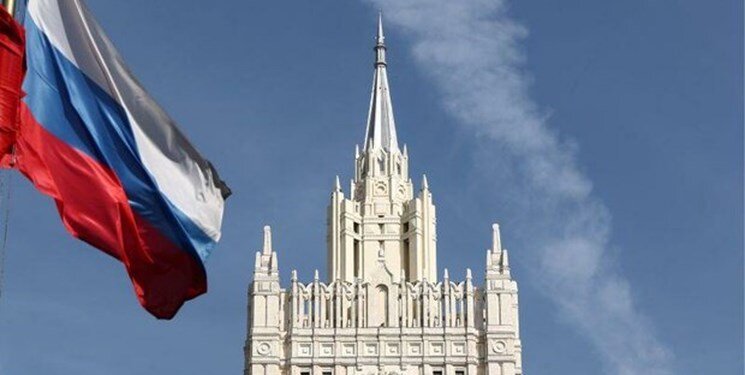Russia reacts to reports of Iran enrichment acceleration

TEHRAN – Russia’s Foreign Ministry has reacted to press reports that Iran allegedly accelerated its production of highly enriched uranium, underlining that this was because of the lack of progress on the restoration of the 2015 Iran nuclear deal.
The Russian reaction came a week after Reuters reported that Iran has accelerated its enrichment of uranium.
Citing a report by the International Atomic Energy Agency, Reuters said that “Iran increased the purity to which it is refining uranium to 60% from 20% in April in response to an explosion and power cut at its Natanz site that damaged output at the main underground enrichment plant there.”
The Russian Foreign Ministry described the alleged acceleration of enriched uranium production as a “deviation” from the 2015 Iran nuclear deal, officially known as the Joint Comprehensive Plan of Action (JCPOA), but said this deviation is because there were no practical results in the talks to restore the nuclear pact.
“This yet another JCPOA deviation is mostly due to the lack of practical results of Nuclear Deal restoration, while unilateral U.S. sanctions against Iran & other cooperating countries remain intact,” the Russian Foreign Ministry said, according to a tweet by the Russian diplomatic mission in Vienna.
It added, “However, we’re more concerned that this takes us further away from the initial goal, while the task to create conditions for sustainable implementation of comprehensive agreements gets more elusive.”
Earlier on August 19, the three European countries of France, Germany, and the UK that are party to the JCPOA issued a statement to express concern over Iran’s nuclear activities.
“We, the governments of France, Germany and the United Kingdom, note with grave concern the latest reports by the IAEA confirming that Iran has produced uranium metal enriched up to 20% for the first time, and has significantly increased its production capacity of uranium enriched up to 60%,” the statement said.
The E3 once again accused Iran of violating the JCPOA and pursuing nuclear activities that are of no “credible civilian” use.
“Our concerns are deepened by the fact that Iran has significantly limited IAEA access through withdrawing from JCPOA-agreed monitoring arrangements and ceasing application of the Additional Protocol,” the E3 added. “Iran’s activities are all the more troubling given the fact talks in Vienna have been interrupted upon Tehran’s request for two months now and that Iran has not yet committed to a date for their resumption. While refusing to negotiate, Iran is instead establishing facts on the ground which make a return to the JCPOA more complicated.”
They concluded, “Iran must halt all activities in violation of the JCPOA without delay. We urge Iran to return to the negotiations in Vienna as soon as possible with a view to bringing them to a swift, successful conclusion. We have repeatedly stressed that time is on no-one’s side.”
Iran is yet to set a date for resuming the Vienna nuclear talks but it suggested that they may be resumed soon. “We strive to make the Vienna dialogue meaningful. Opposing parties should pay attention to the facts and come to Vienna based on the view that they should fulfill their obligations,” Iranian Foreign Ministry spokesman Saeed Khatibzadeh said on Monday.
Speaking at a weekly press briefing, the spokesman also touched on the possible resumption date of the next round but he refused to set a certain date for the talks. He only said that a decision would be made on the resumption of talks.
“That a decision would be made on the date of holding a new round of negotiations is natural and this would happen,” Khatibzadeh said.
The United States and its three European allies, known as E3, have been trying out many diplomatic tactics and stunts to force Iran into returning to Vienna ever since the last round of talks, held in June, end up in a stalemate. After six rounds of talks, nuclear negotiators from Iran and the remaining parties to the JCPOA and the U.S. reached a critical juncture where they needed to make tough decisions.
The U.S. and France called on Iran to make “tough decisions” to break the deadlock over the deal. Iran responded by saying that if a party is to make tough decisions, it is the United States and its European allies, not Iran, because Iran had already made tough decisions after the U.S. unilateral decision to withdraw from the JCPOA in May 2018.
In the meantime, Iran underwent a transition of power, which caused a hiatus in Iran’s nuclear deliberations. But this didn’t prevent the U.S. from brandishing a tightening of the noose on Iran’s oil sales to China in a bid to force Iran to return to Vienna.
Iran said it would decide on the Vienna talks after completing the transitions period. It hinted that a return to Vienna is in the cards, but it did not set any date for that.
